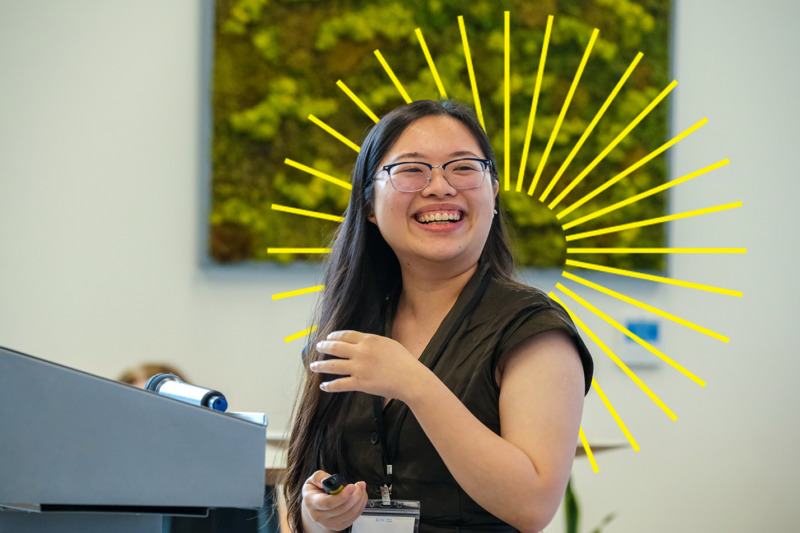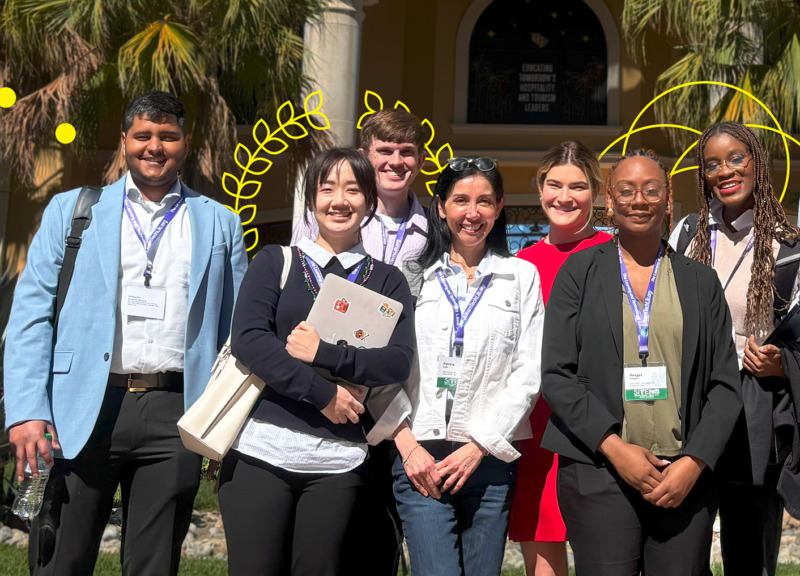The 36-credit MEITE program can be completed full-time in one year across fall, spring, and summer semesters, or part-time over 2 to 3 years for students balancing work and study. Admissions are rolling, with fall and spring start options. The program culminates in a final project completed during the summer semester, with presentations held during the Innovation Showcase on the last Friday of July.
Full-time students take 12 credit hours of coursework plus a 3-credit internship each semester, finishing with two 4-week summer sessions. Part-time students typically begin by taking 6 credit hours per semester in their first year, then add a 3-credit internship alongside 6 credit hours of coursework in their second year, also concluding with summer sessions.
The program of studies includes:
- 12 credit hours in core courses across the fall and spring;
-
12 credit hours of courses in your specialized concentration across the fall and spring;
- The Edupreneur
- The Innovative Officer
- The Learning Engineer
- The Adaptive Learning Analyst
- 6 credit hours of internship experience across the fall and spring; and,
- 6 credit hours of a thesis project during the summer sessions.

Specialized Concentrations
MEITE students choose from four specialized concentrations, each offering tailored course pathways that enable them to shape their degree and graduate experience around their individual interests and professional goals. Those concentrations include:
The Edupreneur
The Edupreneur utilizes the core concepts for design thinking to develop and prepare for the launching of unique, innovative ventures in the field of education. This concentration is ideal for students who wish to begin their own startup or join an early-stage startup.
| Internship Outcomes | Course Focus Area | Final Project |
|---|---|---|
| Innovative Startup EdTech Developers Business Accelerators |
Business Practices Entrepreneurship Learning Analytics Organizational Leadership |
Prototype & Venture Plan Example
|
The Innovative Specialist
The Innovative Specialist gains a deep understanding of the trends, research, and budgetary issues related to leadership, business, and innovation in educational organizations. This track prepares graduates to work in specialized roles within departments of educational organizations, including private companies, schools, districts, and nonprofits.
| Internship Outcomes | Course Focus Area | Final Project |
|---|---|---|
| EdTech Companies Marketing Firms Offices of Innovation |
Business Practices Current Issue Innovation Organizational Leadership |
Industry Analysis & Business Profile Example
|
The Learning Engineer
The Learning Engineer uses instructional design principles along with analytics to create engaging, collaborative learning experiences for a range of learners. This track builds the knowledge and skills needed to work in school districts, universities, textbook companies, eLearning providers, training departments, and nonprofits.
| Internship Outcomes | Course Focus Area | Final Project |
|---|---|---|
| Curriculum Development Training Departments Offices of Innovation |
Digital Design Instructional Methods Learning Analytics |
Full Online Course & Instructional Design Framework Example |
The Adaptive Learning Analyst
The Adaptive Learning Analyst gains the data science skills needed to analyze information sets for themes and patterns to support learning and teaching. This concentration’s focus includes designing digital learning environments that feature adaptive learning elements and the quantitative research skills needed to evaluate data collected by those environments and elements. It prepares students for employment with educational technology companies and organizations as data analysts and scientists.
| Internship Outcomes | Course Focus Area | Final Project |
|---|---|---|
| EdTech Companies Technology Departments Quantitative Researcher |
Adaptive Environments Innovation Statistics Learning Analytics |
Digital Learning Environment & Adaptive Element Example
|
Internship
The MEITE internship is a vital and highly valued part of the program, designed to equip students with the skills, experiences, and professional dispositions essential for success in educational innovation. This real-world experience offers students meaningful opportunities to apply their learning and build connections within the field.
Each semester, program leadership collaborates within a network of educational organizations and companies across the Research Triangle and beyond to identify internship opportunities. Students work closely with the MEITE Program Director to select internship placements that align with their interests and professional goals, ensuring a personalized and purposeful experience.
Both onsite and virtual internships are supported, and students are encouraged to suggest additional placements that reflect their interests.
Internships generally span two semesters, with students dedicating approximately eight hours per week during the fall and spring semesters. Throughout this time, students will also participate in cohort sessions to reflect on their experiences and learn collaboratively with their peers.
MEITE Innovation Showcase
The MEITE program concludes with the Innovation Showcase, held annually on the last Friday in July. This culminating event gives students the opportunity to present high-impact projects developed throughout their program experience — from instructional design frameworks and dynamic digital learning environments, to industry analyses and venture prototypes that address real-world challenges in education. The showcase offers a meaningful opportunity to share innovations, demonstrate applied learning, and celebrate the accomplishments of each graduating cohort.
The event regularly draws UNC-Chapel Hill faculty and staff, industry partners, community members, and MEITE alumni and peers. During the first summer session, students complete their final projects, then use the second session to refine their presentations in preparation for the event.
